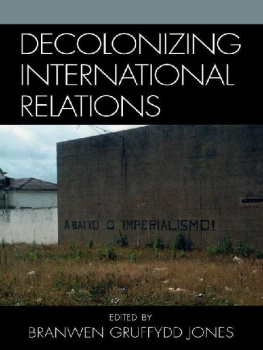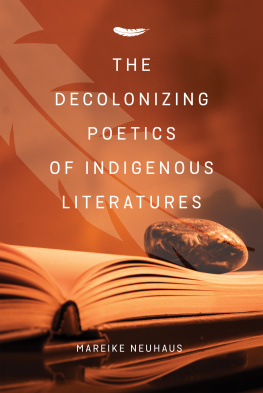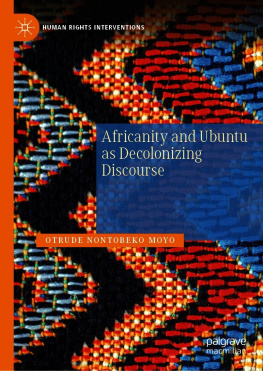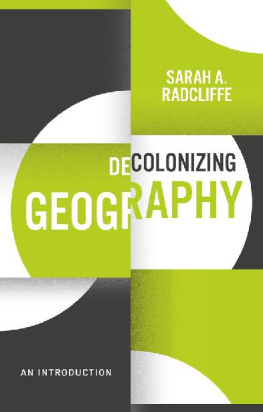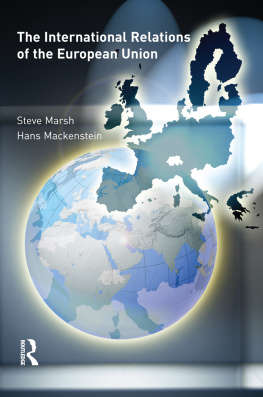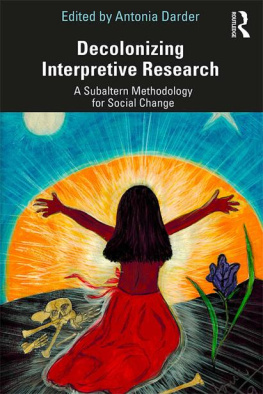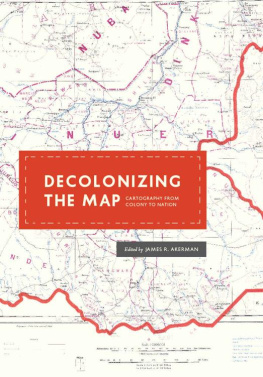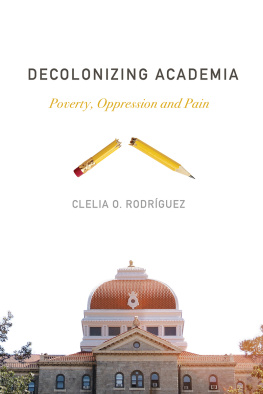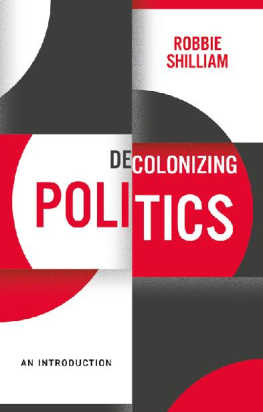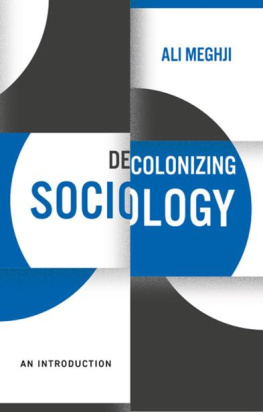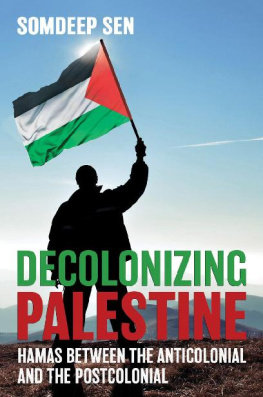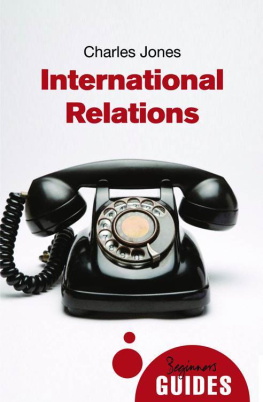Branwen Gruffydd Jones (ed.) - Decolonizing International Relations
Here you can read online Branwen Gruffydd Jones (ed.) - Decolonizing International Relations full text of the book (entire story) in english for free. Download pdf and epub, get meaning, cover and reviews about this ebook. year: 2006, publisher: Rowman & Littlefield Publishers, genre: Politics. Description of the work, (preface) as well as reviews are available. Best literature library LitArk.com created for fans of good reading and offers a wide selection of genres:
Romance novel
Science fiction
Adventure
Detective
Science
History
Home and family
Prose
Art
Politics
Computer
Non-fiction
Religion
Business
Children
Humor
Choose a favorite category and find really read worthwhile books. Enjoy immersion in the world of imagination, feel the emotions of the characters or learn something new for yourself, make an fascinating discovery.
- Book:Decolonizing International Relations
- Author:
- Publisher:Rowman & Littlefield Publishers
- Genre:
- Year:2006
- Rating:5 / 5
- Favourites:Add to favourites
- Your mark:
- 100
- 1
- 2
- 3
- 4
- 5
Decolonizing International Relations: summary, description and annotation
We offer to read an annotation, description, summary or preface (depends on what the author of the book "Decolonizing International Relations" wrote himself). If you haven't found the necessary information about the book — write in the comments, we will try to find it.
Decolonizing International Relations — read online for free the complete book (whole text) full work
Below is the text of the book, divided by pages. System saving the place of the last page read, allows you to conveniently read the book "Decolonizing International Relations" online for free, without having to search again every time where you left off. Put a bookmark, and you can go to the page where you finished reading at any time.
Font size:
Interval:
Bookmark:

by Rowman & Littlefield Publishers, Inc.
A wholly owned subsidiary of The Rowman & Littlefield Publishing Group, Inc.
4501 Forbes Boulevard, Suite 200, Lanham, Maryland 20706
www.rowmanlittlefield.com
Plymouth PL6 7PY
United Kingdom
327.101dc22
 The paper used in this publication meets the minimum requirements of American National Standard for Information SciencesPermanence of Paper for Printed Library Materials, ANSI/NISO Z39.481992.
The paper used in this publication meets the minimum requirements of American National Standard for Information SciencesPermanence of Paper for Printed Library Materials, ANSI/NISO Z39.481992.| AAPS | African Association of Political Science |
| AAWORD | Association of African Women for Research and Development |
| AIDS | acquired immune deficiency syndrome |
| BBC | British Broadcasting Corporation |
| CIDA | Canadian International Development Agency |
| CODESRIA | Council for the Development of Social Science Research in Africa |
| DAC | Development Assistance Committee |
| GATS | General Agreement on Trade in Services |
| GNP | gross national product |
| IFIs | international financial institutions |
| IMF | International Monetary Fund |
| IPE | international political economy |
| IR | international relations |
| ICZs | Islamic cultural zones |
| NGO | nongovernmental organization |
| NIEO | new international economic order |
| OECD | Organization for Economic Cooperation and Development |
| OED | Oxford English Dictionary |
| OSSREA | Organization for Social Science Research in Eastern and Southern Africa |
| CPA | Coalitional Provisional Authority |
| SAPES | Southern Africa Political Economy Series |
| TWAIL | Third World approaches to international law |
| UK | United Kingdom |
| UN | United Nations |
| UNDP | United Nations Development Program |
| US | United States |
| USA | United States of America |
Font size:
Interval:
Bookmark:
Similar books «Decolonizing International Relations»
Look at similar books to Decolonizing International Relations. We have selected literature similar in name and meaning in the hope of providing readers with more options to find new, interesting, not yet read works.
Discussion, reviews of the book Decolonizing International Relations and just readers' own opinions. Leave your comments, write what you think about the work, its meaning or the main characters. Specify what exactly you liked and what you didn't like, and why you think so.

